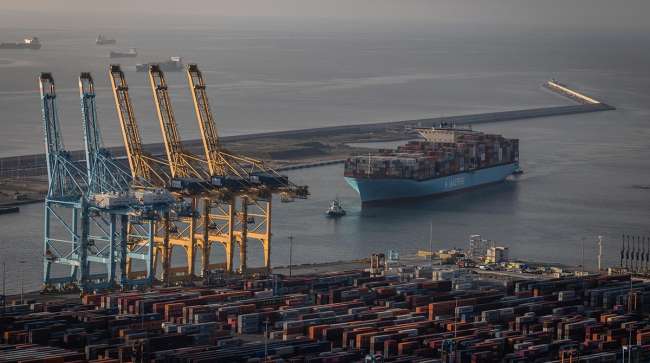A cargo ship arrives at the port of Barcelona in Spain. (Angel Garcia/Bloomberg)
The European Commission has formally launched a surveillance tool to monitor any trade diversion resulting from U.S. President Donald Trump’s tariffs, as initial results revealed a surge of imports in many goods.
A first set of analysis published by the bloc’s executive arm on June 5 shows imports of some appliances and switches increased by more than 60% compared with last year, while prices dropped.
Shipments of industrial robots rose threefold and prices fell by more than a third. Imports of some steel products, which have been hit by Trump’s heftiest levies, rose by more than 200% and saw a 55% plunge in prices over the same year-on-year period. Similar trends are repeated across many other items, including chemicals, electronics and textiles.
Because many goods are shut out of U.S. markets due to high tariffs, the EU has made it a priority that those items aren’t diverted into the 27-nation bloc. Trump has imposed sectoral duties of 25% on cars and 50% on steel and aluminum, while hitting most other goods with a universal, so-called reciprocal tariff of 10%.
READ MORE: Trump Says US and China Will Resume Trade Talks
The commission is particularly concerned by trade diversion from China, which has been targeted by the U.S. with higher rates. Beijing currently faces Trump’s 10% reciprocal duty on top of a 20% border tax tied to fentanyl trafficking after both sides agreed last month to lower rates and allow a 90-day period for negotiations.
Both sides have since pointed fingers at each other for breaking the deal, although Trump and President Xi Jinping held a much-anticipated call June 5 — their first known conversation since Trump was sworn in for a second term Jan. 20.
The bloc’s executive arm will update the analysis every month based on customs data and industry input.
Commission President Ursula von der Leyen announced the creation of a task force last month to address the matter, and said Brussels would set up a dialogue with Beijing to track any possible diversion.






